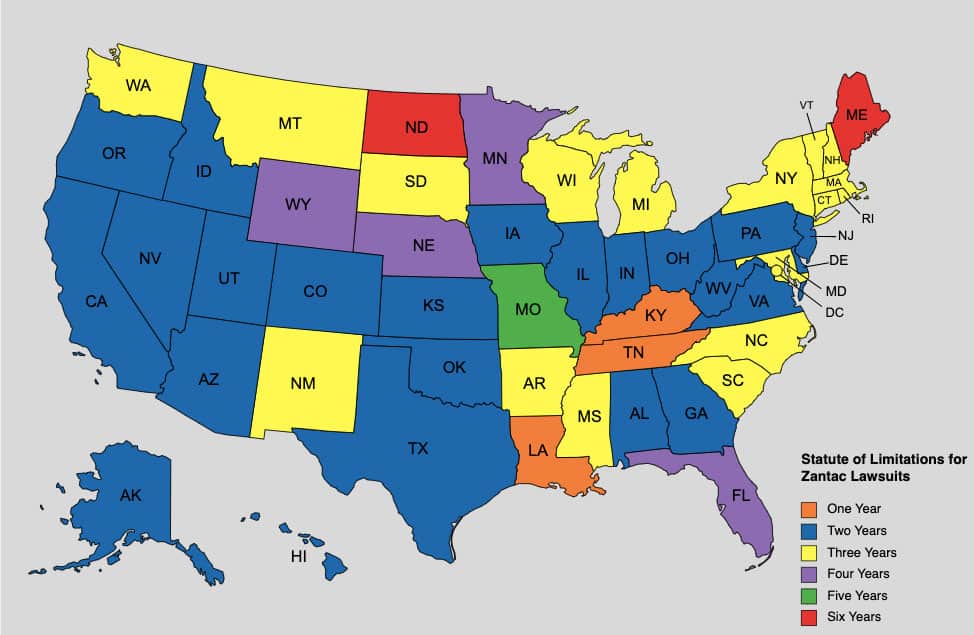Mass Torts Lawsuit
Zantac Lawsuit Statute of Limitations | What You Need to Know
Zantac Lawsuit Statute of Limitations
When considering legal action over Zantac (ranitidine), understanding the statute of limitations is crucial. This legal timeframe dictates how long you have to file a lawsuit after discovering an injury, such as cancer, linked to the medication. Here’s what you need to know about the statute of limitations for Zantac lawsuits.
Table of Contents
About the Zantac Lawsuit Statute of Limitations
The statute of limitations for Zantac lawsuits varies by state, generally ranging from one year to six years. This period starts from the date you discovered the injury or should have reasonably discovered it. Given that the FDA’s recall of Zantac occurred relatively recently, most plaintiffs should still be within this legal timeframe.
If you’re considering a lawsuit but are concerned that the statute of limitations may have expired, it’s worth noting that exceptions and extensions might apply. Consulting with a personal injury lawyer can provide guidance tailored to your specific situation.

States with a 1 Year Statute of Limitations for Zantac Lawsuits
In these states, you generally have one year from the date of injury or diagnosis to file a lawsuit:
- Kentucky
- Louisiana
- Tennessee
States with a 2 Year Statute of Limitations for Zantac Lawsuits
If you reside in one of these states, you have two years from the injury or diagnosis to file your claim:
- Alabama
- Alaska
- Arizona
- California
- Colorado
- Delaware
- Georgia
- Hawaii
- Idaho
- Illinois
- Indiana
- Iowa
- Kansas
- Nevada
- New Jersey
- Ohio
- Oklahoma
- Oregon
- Pennsylvania
- Texas
- Utah
- Virginia
- West Virginia
States with a 3 Year Statute of Limitations for Zantac Lawsuits
In these states, you have three years from the date of injury or diagnosis to take legal action:
- Arkansas
- Connecticut
- Washington D.C.
- Maryland
- Massachusetts
- Michigan
- Mississippi
- Montana
- New Hampshire
- New Mexico
- New York
- North Carolina
- Rhode Island
- South Carolina
- South Dakota
- Vermont
- Washington
- Wisconsin
States with a 4 Year Statute of Limitations for Zantac Lawsuits
You generally have four years from the date of injury or diagnosis to file a lawsuit in these states:
- Florida
- Minnesota
- Nebraska
- Wyoming
States with a 5 Year Statute of Limitations for Zantac Lawsuits
In Missouri, you have five years from the date of injury or diagnosis to file your claim.
- Missouri
States with a 6 Year Statute of Limitations for Zantac Lawsuits
These states offer the longest timeframe, with six years allowed from the date of injury or diagnosis:
- Maine
- North Dakota
Additional Considerations
Since the FDA recall of Zantac happened on April 1, 2020, most claims should still be within the statute of limitations. However, exceptions and specific rules might apply based on individual circumstances and state laws. It’s essential to consult with a personal injury attorney to understand your legal options and ensure that your lawsuit is filed within the required timeframe.
Understanding the statute of limitations for your Zantac lawsuit is key to ensuring your rights are protected and that you have the opportunity to seek compensation for any harm caused by the medication.